
The rise of technology has transformed how we create modern vehicles like cars, airplanes, and ships. However, when it comes to the construction industry, things have stayed pretty much the same in the US. We’re still using techniques that have been around for centuries, long before we had smartphones or computers.

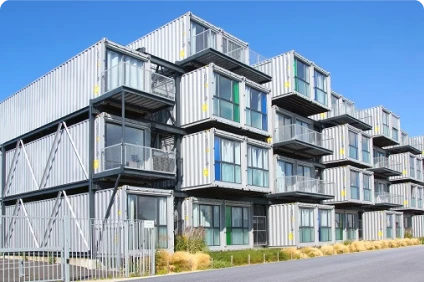
Modular construction streamlines the entire building process through prefabrication. From design to final assembly, every stage is efficiently coordinated, reducing time and complexity.
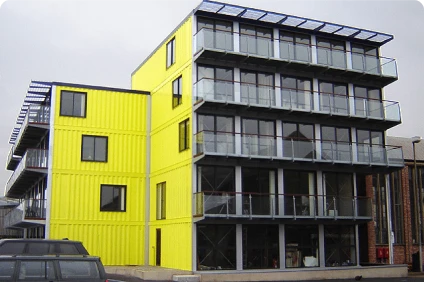
Projects are developed in parallel with site preparation, accelerating timelines and improving cost-efficiency. This allows for early planning and quicker deployment.
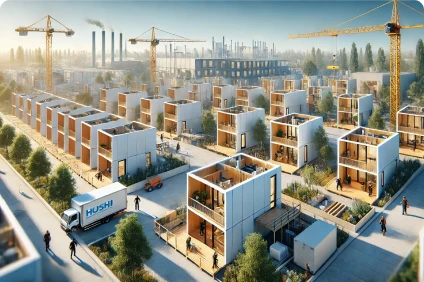
Modular solutions offer flexible and repeatable design templates. Customization is easy, and design iterations can be implemented with minimal disruption.
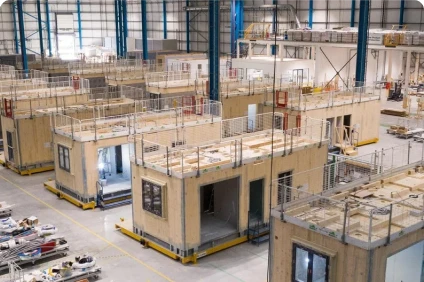
Building components are manufactured in a controlled factory setting, ensuring consistent quality, reducing material waste, and limiting weather delays.
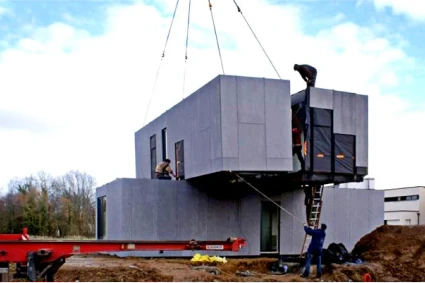
On-site assembly is fast and efficient. Pre-manufactured modules are delivered and installed, drastically shortening construction duration and labor costs.
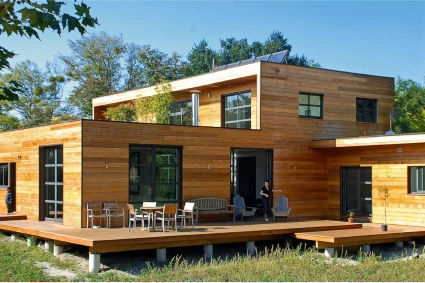
Modular buildings can be designed for temporary or permanent use. Leasing options offer a cost-effective solution for industries needing rapid or flexible space deployment.
From single-family homes to multi-unit apartment buildings, modular construction ensures faster occupancy and scalable residential solutions.
Hotels and resorts benefit from modular construction through standardized room units, reduced build time, and consistent interior quality.
Time-critical and precision-driven healthcare facilities—like clinics, hospitals, and labs—are ideal for modular construction due to reduced on-site disruptions and high regulatory compliance.
Pre-fabricated bathroom and kitchen pods simplify installation in residential, hospitality, and healthcare projects—ensuring consistency, speed, and lower labor costs.
Modular construction enables rapid, cost-effective expansion of classrooms, offices, and dormitories—adapting to changing needs with minimal disruption and long-term energy savings.
Warehouses, manufacturing plants, and other industrial facilities can be constructed modularly to meet demanding timelines and scalable infrastructure needs.
A modern, integrated approach to modular construction that outperforms traditional methods.

A linear process where design, bidding, and construction happen in sequence. This often results in delays, miscommunication, and cost overruns.



An integrated and parallel workflow that begins with design, continues with simultaneous off-site manufacturing, and ends with rapid on-site assembly.
Key Issues:
The primary benefit of modular construction is its capacity for parallel processing. This method eliminates weather-related delays and allows for consistent timelines.
Assurance is not a term usually linked with the construction industry, but this perception can change. Modular has mitigated quality risks like never before.
High-end performance is standard with modular construction, which can cut energy use by 50% compared to traditional systems.
Storing materials in a factory reduces waste, theft, and damage, leading to more sustainable operations and a more efficient production process, and much more.
Increased reliance on machinery naturally boosts efficiency. Machines can be programmed to perform the same task repeatedly, delivering consistency and accuracy that humans cannot achieve.
Modular provides a productized approach to development with limitless options. This not only satisfies market demand but also enables the industry to continually innovate and enhance product offerings.
Modular construction enhances certainty by leveraging controlled factory environments and precision manufacturing processes. By minimizing the risks associated with weather, labor variability, and site logistics, we deliver consistent quality, predictable costs, and streamlined project timelines.
© 2025 Dynamic Modular Solutions, LLC. All rights reserved.